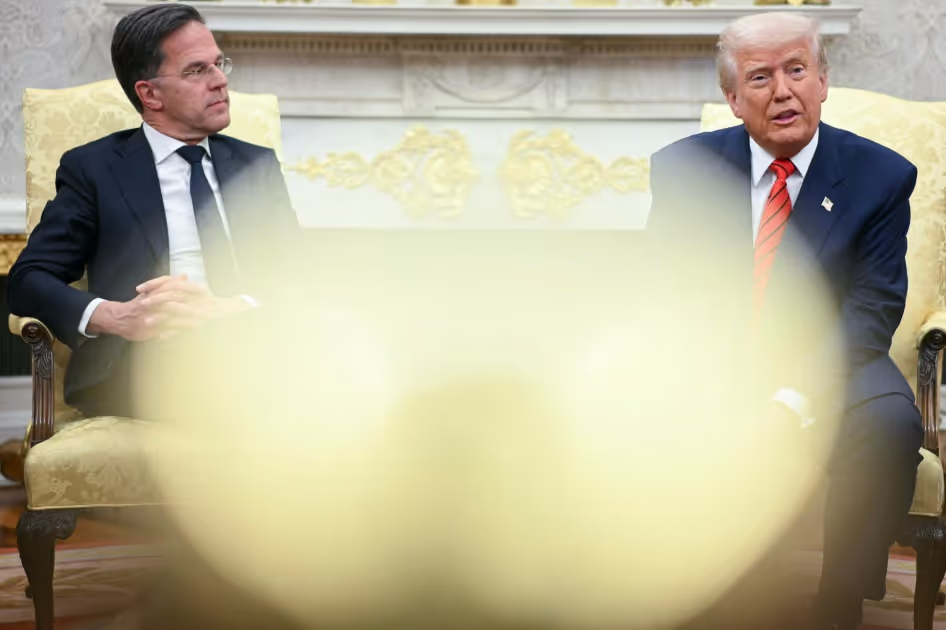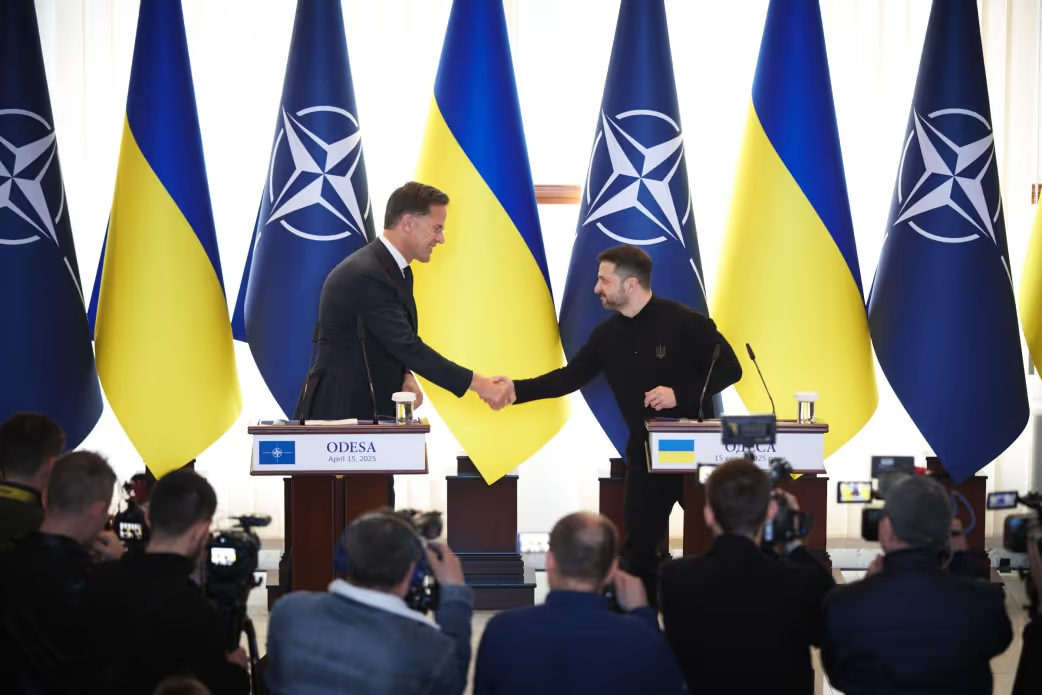Support Sestry
Even a small contribution to real journalism helps strengthen democracy. Join us, and together we will tell the world the inspiring stories of people fighting for freedom!
One of the most famous American generals, who has been acting as Senior Advisor of the American organisation Human Rights First since 2022, has diagnosed the situation of the West, Russia and Ukraine in the context of the war that has been going on for over two and a half years now in a Times Radio interview during a recent NATO summit.
What Russians are capable of
Hodges believes Russia has little space left for manoeuvring, as it can no longer lead Ukraine out of the war. Russian commanders and politicians with Putin as their leader, not caring about their soldiers, will continue sentencing thousands of others to death and disabilities day by day.
«Although, I do not think this will last infinitely, - the officer assesses. - Their human resources are limited. Even if we do not take the sanctions and their ability to transport oil seriously, I do not know if they will manage to hold on for two more years - also due to the lack of human resources and necessary components».
In the general’s opinion, the West will play a crucial role in accelerating Russia’s collapse if it takes the economic tools that have long been at its disposal seriously
At the moment, Russia is «doing what it can, waiting for us to let go of it and hoping that the potential Trump administration will make life easier for it». And this is approximately everything it can afford right now.

Putin: calculations of a bad man
In Hodges's eyes, Putin is a highly intellectual person, though simultaneously evil, merciless and such that does not care for anything but keeping power. His hopes for Trump’s possible victory are well-known: he is hoping that the USA will stop supporting Ukraine and force it to sign a peace treaty on Russian terms. On the other hand, if Biden wins [read as: the Democratic party candidate, as the interview has been taken before the President of the USA withdrew from the presidential race - Edit.], Putin will act by the already familiar plan: continued acts of diversion in Western countries and intensified disinformation that is expected to undermine the trust of the free countries’ citizens in their leaders and democratic institutions.
Biden’s policy: «catching arrows»
Hodges admires Biden’s recent promises to send more anti-aircraft equipment to Ukraine: this is significant support that measures up to the real needs of Ukrainians defending themselves. But this only solves a part of the problem. «Killing the archer is much more effective than catching all the arrows he is shooting, - the general points out. - This support package helps catch more arrows but it does not in any way help kill the archer».
From the officer’s words, the Biden administration continues to impose a «terrible policy», according to which Ukraine can not attack Russian bases in Russia using, for example, the American ATACMS systems. In practice, this policy gives Russia protection for it to commit attacks on Ukrainian cities. Yes, the general is glad to see more «Patriots» and ATGMs but it still is not enough. «I do not know what has to happen for the White House to address supporting Ukraine in defeating Russia seriously. Putin sees that we are not doing everything that is needed. He still has a big buyer of his gas, India, therefore until we start seriously helping Ukraine defeat Russia, Russians will keep on bombing Ukraine», - he warns.
Excessive fear and virtual guarantees
Hodges would like to believe that, as allies and President Zelenskyy himself say, Ukraine’s path into NATO is truly irreversible. «The issue is that there is no movement on this path», - he says. Many politicians at the summit in Switzerland contemplated what they could do about it but nothing in this chatter seems to lead to imminent and irreversible decisions. Whose opinion is that? The USA’s and Germany’s, that continue to obstruct this question, being guided by excessive fear of Russia using nuclear weapons. «Until this excessive fear is conquered, nothing will change for the better», - the general says.
- What guarantees can NATO give Ukraine and how can it strike Russia diplomatically if it can not offer Ukrainians membership right now?
Although Hodges does not imply it directly, it can be understood from his words that in this situation - there are none. As there is no 100 per cent confidence that Ukraine will join NATO. Considering that the Budapest Memorandum of 1994 [in which the USA, Great Britain and Russia guaranteed Ukraine’s sovereignty and territorial integrity in exchange for it becoming a non-nuclear-weapon state - Edit.] turned out to be an empty obligation - Hodges is not sure that the next similar commitments will be more trustworthy.

If the West fails again
The general puts all his hope into the understanding of many countries that Ukraine can not lose, that it has to win because its defeat would be a catastrophe for the whole Europe and therefore for the world as well. Because if it were to happen, the following millions of Ukrainian refugees would end up in Poland and Germany, and tens of thousands of Ukrainian soldiers would be forcefully enlisted in the Russian army, increasing its potential.
If the USA fails - be it because of a new party in power (Trump’s party) or any other reason, fails because of not having done what is needed, - the threat to Europe would not diminish but increase
In any case, it would not be surprising if the USA and more - the so-called collective West, do not live up to the expectations. In the last decade, both failed many times. «In 2008, when Russia invaded Georgia, we did nothing. The same way, when Russians crossed the lines drawn by President Obama in Syria and when they invaded Ukraine in 2014», - Hodges points out. It is not unnatural that in 2021 preparing the invasion, and in 2022 performing it, Putin assumed that the West’s anger would not amount to anything once again.
Reanimate the deterrence
The American also lists some other shocking signs of the West’s weakness that convinced Putin he was right: the Trumpist attack on Capitol Hill on January 6th 2021, the chaotic extraction of American troops from Afghanistan, Germany’s inability to stop the construction of «Nord Stream-2» despite the Russian annexation of Crimea and a significant portion of the Donetsk and Lugansk regions, President Macron’s statements about the «NATO’s brain death».
«You can imagine that amid all this the Kremlin thought: «Let’s finish this», - Hodges comments.
The war in Ukraine broke out because the deterrence failed. Therefore, it should be renewed because the world is an interconnected system. The USA’s economic flourishing, the USA President’s advisor on human rights points out, depends on the flourishing of Europe, and it is impossible if the Old Continent lacks stability and security.

«If we help Ukraine defeat Russia, this will enable us to isolate Iran, and then North Korea, which will, subsequently, deter China. Because the Chinese will see that the West has political will, industrial potential and military capabilities», - Hodges states. The defeat of Russia also is the West’s only serious protection from isolationist Trump’s coming to power.And if Ukraine does lose, the danger of China coming to «scary decisions» will rise swiftly.
When Putin falls from the cliff
How soon the Russians reach the turning point of this war and for how long Putin will keep in power depends on the dictator’s closest associates. Because he only answers to them - the oligarchs and the closest Kremlin members, not the parliament, voters or journalists who ask uncomfortable questions on behalf of those voters, as it is in any normal country. So when these people understand that there is no longer a chance for Russia to win, they will «push Putin off of a cliff and dispose of him».
Yes, the Kremlin dictator has no serious reasons to believe he will lose yet. But the day he does will be the beginning of his end
Translation: Anastasiya Kanarska
Support Sestry
Even a small contribution to real journalism helps strengthen democracy. Join us, and together we will tell the world the inspiring stories of people fighting for freedom!



















.avif)




















